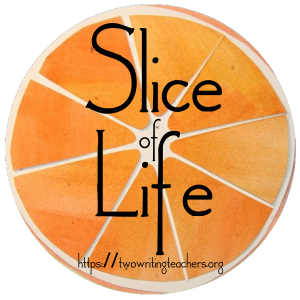Morning Pages
Nulla dies sine linea ("No day without a line")
Although it resided on my bookshelf for several years, I did not start reading The Artist’s Way: A Spiritual Path to Higher Creativity by Julia Cameron until the beginning of June. This book is all about creativity. It’s often referenced by writers, and it has been a resource that I have wanted to read for some time now.
Confession: I still haven’t read the whole book yet.
Along with a twelve weeks of self-guided work, Julia Cameron introduces two main tools/principles: Morning Pages and the Artist Date. Even though I have only focused on Morning Pages so far, I’m hooked. It is definitely a resource I will return to.
Along with a twelve weeks of self-guided work, Julia Cameron introduces two main tools/principles: Morning Pages and the Artist Date. Even though I have only focused on Morning Pages so far, I’m hooked. It is definitely a resource I will return to.
The concept of Morning Pages is pretty simple - write at least three pages every day. Morning Pages don’t begin with any kind of a prompt or script. Julia Cameron insists that there is no wrong way to write Morning Pages - you just write. It is all about writing what is on your mind. You know, the stream-of-conscious longhand kind of writing.
Raw thoughts on paper.
The beauty of Morning Pages is that it teaches you that you don’t need to be in a magical mood to write. You don’t even need to be inspired by an amazing idea. It doesn't matter your location. Just write.
Three pages. Every day. No exceptions.
I don’t have a home office or even a space that is only mine. I have two busy tweens, a husband, and two high-need dogs. My small house is loud. (In fact, as I type, my nine-year-old is whistling a shrill tune directly in my ear. Awesome.) I can’t always get to a coffee shop to write (or afford to), especially every day. This hasn’t stopped me from writing each day. I try to carve out at least thirty minutes in my day to write, whether it is in the morning (as Julia Cameron suggests) or later on in the day. In fact, I have been known to write in my mini van (see photo below) just to get a chunk of uninterrupted writing time.
| Writing Morning Pages in the parking lot at the grocery store |
There are times when I feel like I have nothing to write. Cameron suggests to write over and over, “I can’t think of anything to write” until you think of something. I have written this mantra until I can think of something, even if it is incredibly mundane. At the end of July I read a post from a guest writer on Kate Messner’s blog during Kate’s Teachers Write 2017! As a writing exercise, author Olugbemisola Rhuday-Perkovich suggests to spend at least fifteen minutes to describe what you did and noticed in the last twenty-four hours. I tried this when I felt like I had nothing worth writing about. It worked, and I wrote far more than three pages. This entry ended up being more than just listing-my brain created a spiderweb of thoughts. I honored my messy thinking that day and it fueled me in the best way.
Although it is not always helpful to reread Morning Pages (especially when you first get started), I like to page through mine and flag lines or topics that I want to explore in a deeper way. As I was reminded when I read Olugbemisola Rhuday-Perkovich’s post, I can easily see what I care about - my writing territories. I tend to write about the relationships I have with my children, husband, friends, and coworkers. I write about parenting, books I adore or am wondering about, education, and the power of writing.
Morning Pages often surprise me. Donald Murray once wrote, “We surprise ourselves by what we write. Writing is thinking, not thought recorded.” As I have known for a long time, writing often helps me process what I’m grappling with. Morning pages are a safe place for me to write about what is really bothering me, what scares me, and what I am deeply hurt by. These pages are where I can write about topics that I am not ready to talk about.
Perhaps the one of the best things that Writing Pages have done for me is to silence my inner critic more often. You know that voice that tells you that your writing sucks? That voice that tells you that your ideas are not worth sharing? That you have no business writing? Author Gae Polisner also wrote about this in a recent blog post on That Wee Bit Heap. She reminds me that the struggle is IN the act of writing. The struggle is what you must embrace. My inner critic is still there, but I since I started writing Morning Pages, I found that I don't listen to it as often.
Writing Morning Pages have helped me more than I thought they would. Have you ever thought about trying it, too?
Writing Morning Pages have helped me more than I thought they would. Have you ever thought about trying it, too?


